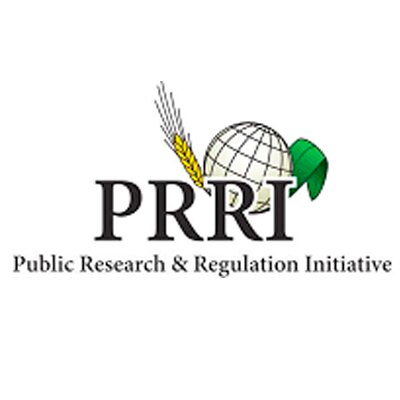(Hyperlink added) |
Diana Tamayo (Talk | contribs) |
||
| Line 14: | Line 14: | ||
<p>We will now narrate how we’ve accomplished the requisites, but please visit our [https://2017.igem.org/Team:TecMonterrey_GDA/Gold_Integrated Integrated Human Practices] page and our <a>Gold Medal Human Practices</a> page.</p> | <p>We will now narrate how we’ve accomplished the requisites, but please visit our [https://2017.igem.org/Team:TecMonterrey_GDA/Gold_Integrated Integrated Human Practices] page and our <a>Gold Medal Human Practices</a> page.</p> | ||
| − | <p>Identify and investigate one or more HP issue in the context of the project | + | <p>For the silver medal requirements the following conditions have to be accomplished:</p> |
| + | |||
| + | <p>Identify and investigate one or more HP issue in the context of the project | ||
| + | Demonstrate that our work is safe, responsible and good for the world | ||
| + | Develop new creative approaches</p> | ||
| + | |||
| + | <p>We will now narrate how we’ve accomplished the requisites, but please, also visit our Integrated Human Practices page and our Gold Medal Human Practices page</p> | ||
| + | |||
| + | <p>Identify and investigate one or more HP issue in the context of the project: | ||
| + | </p> | ||
| + | |||
| + | <p>Tequila an economic and cultural heritage</p> | ||
| + | |||
| + | <p>Tequila is one of the biggest industries in México, it is a alcoholic beverage extracted from Agave Tequilana, with 558 places within states that dedicate fully on the Agave growth and production it is a major source of employment and economic gain for many. The chain of value is not only limited to economic aspects but also cultural, ethnic, social and environmental importance of several areas of the country The Agave is also a vital species for indigenous populations and is also used for medicine, fertilizers, food and its growth promotes development for the area as well as it helps eradicating poverty. | ||
| + | (CIATEJ, 2016 ). Tequila is now exported to around 120 countries, and the production is about 300 liters/minute (El país, 2013). </p> | ||
| + | |||
| + | <p>The tourism industry in Mexico is also a major economic and development tool, a report from the National Chamber of Tequila Production states that, of the total products consumed in Mexico by foreigners 57% accounts solely for Tequila, as it is a major attraction for tourism. Also the same report stated that 900 thousand tons of Tequila are produced annually, employing 300 thousand people across the country (Millenio, 2017). </p> | ||
| + | |||
| + | <p>But like any major industry, it produces tons of waste, the two major contaminants that result from Tequila production are bagasse and vinasse by 2014, 240 thousand of bagasse ere produced which is equivalent to 20 days of residue generated in the metropolitan zone of Guadalajara city and up to this date its has doubled. The problem with bagasse is that it is a fibrous material, organic but when it is not managed correctly (which happens more often than not ) it produces toxic leachates that pollutes soil and water, changing their properties, causing bad odors and proliferation of damaging fauna such as mosquitos (Ramos, 2017). </p> | ||
| + | |||
| + | <p>To corroborate the issue and validate our project we have visited several Tequila producing industries including El tequileño, Camarena, Saro, Tequilera El Olvido and El triángulo, all of them produce Tequila in Jalisco, the state we live in. Jalisco has a lot of small Tequila producers that help to the economy of the towns and the county. They told us how bagasse was a problem for them, they had a lot of bagasse, taking up a lot of volume and it represented a contamination problem for the community, due to toxic leakages and mosquito proliferation, usually disposal is problematic and they have to pay to get rid of the huge quantities. </p> | ||
| + | |||
| + | <p>We’ve also learned how Tequila is produced. Visit our Human Practices Gallery for photos</p> | ||
| − | |||
<tr> | <tr> | ||
<th>Medal/Prize</th> | <th>Medal/Prize</th> | ||
Revision as of 19:15, 23 October 2017
Silver
| Medal/Prize | Requirements | Actives | Areas | Possible areas | Youth Biotech collaboration |
|---|---|---|---|---|---|
Silver Medal |
Identify and investigate one or more HP issue in the context of the project |
-Current environmental impact of tequila industry -Economic importance of the tequila industry - Cultural importance of tequila industry |
Environmental Impact |
Philosophy |
COP MOP |
Silver Medal |
Demonstrate that our work is safe, responsible and good for the world |
- Risk Assesment about bagasse treatment residues - Environmetal impact study - Importance of reducing the tequila industry resiudes |
- Risk Assessment - Security -Safety |
Public Engagement / Dialogue |
Youth Biotech formation |
Silver Medal |
Engage with local, national and/or international communities |
COP MOP, SynbioLive, TechnoX, Brújula, Risk Analysis course, GapSummit 2017, Campus Party, Allbiotech, ISBGMO |
Public Engagement / Dialogue - Law and Regulation |
Education |
Being Human 2.0 |
Silver Medal |
Develop new creative approaches |
Product Design |
TechnoX 2.0 |












